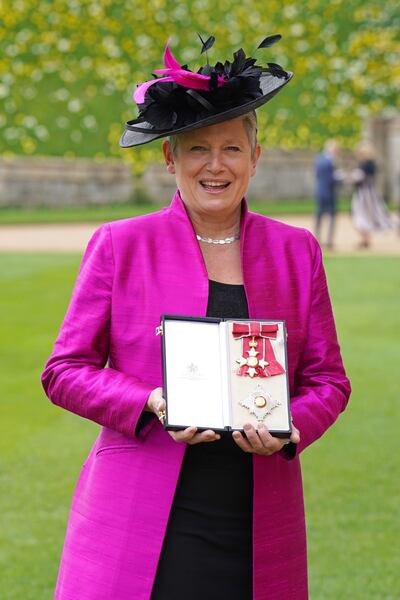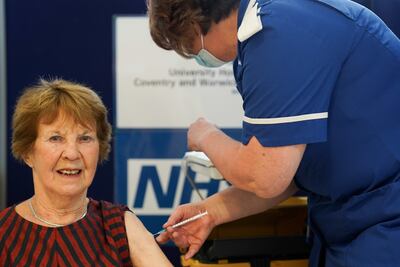The outspoken maverick put in charge of Britain’s innovative quest for a Covid-19 vaccine campaign has heavily criticised the country’s neglect of its pandemic readiness and immunisation programmes since the crisis peaked.
Dame Kate Bingham, who was widely praised for her innovative approach in getting Britain to mass produce the first coronavirus vaccine, has decried the government’s dismantling of Covid planning.
This means that Britain is not well positioned to combat future pandemics, the renowned venture capitalist in the life science sector told a committee of MPs. “I don't think we are in a much better place to deal with a new pandemic, I think we're marginally better,” she said on Wednesday.
Dame Kate, 58, stated that Britain had “lost its leadership” in girding for a Covid-style crisis, which was in complete contrast to the approach by the European Union, which is investing £5.2 billion ($6.21 billion) for pandemic preparation over the next five years.
“What’s gone wrong is that there’s been no expert or leader that's been put in place to co-ordinate the activities,” she told parliament’s health committee. “We've got the capability in this country, but it can't be done in a vacuum. We need to have an expert leader to try and get us back into a better position.”
At the height of the pandemic in 2020 Dame Kate was appointed as the head of the UK’s Vaccine Taskforce and received international praise by making Britain the first major country to vaccinate its population.
Having secured 350 million doses for the UK’s 68 million people she left her post in December 2020, giving the government an outline plan to help fight Covid and any future viral pandemic.
“We gave some very specific recommendations as to what we thought ought to happen, that would define the UK as a global leader from vaccine development to manufacturing, but that's not happened,” she said.

Dame Kate, who is married to the government minister Jesse Norman, originally thought this was due to a lack of experience among government officials, but now suggested that it was “actually deliberate government policy” to not invest in the sector.
“I cannot explain why we haven't appointed somebody that can actually bring all this together, because we've got the capabilities.”
Asked if she had discussed this with anyone in government, Dame Kate said she had not and did not understand “why things that we did put in place are now being dismantled”, such as the Vaccine Manufacturing Innovation Centre.
The lack of leadership meant that there was very little innovation and, she argued, “our vaccines currently are not good enough”.

“We need to improve the quality of the vaccines and the ability to stop transmission,” she said. “Lots of things need to be improved and that’s not going to happen in a vacuum … to actually make sure we stay ahead of the game and are not constantly looking in the rear-view mirror.”
In an interview published on Wednesday in the German Welt newspaper, Dame Kate suggested that the EU’s Health Emergency Preparedness and Response Authority was “much further ahead in their pandemic preparedness plans” than Britain.
“The UK seems to have lost its leadership approach in the vaccine R&D, manufacturing, and procurement,” she said.
While Europe was thinking about pandemic preparedness “in a systematic, professional, effective way”, Britain’s world-leading programme had “gone in the opposite direction”.
The UK’s vaccine sector also suffered a major setback this week when US company Catalent announced it was suspending the construction of a manufacturing and innovation centre near Oxford.
This came after the British government had spent £200 million on the site before selling it to Catalent in April.
Dame Kate told MPs that the closure was a “dumb decision” and said that she was “baffled as to the decisions that are being made”.
She also warned that if under Brexit trade negotiations Britain was forced out of the European Patent Convention, it would be at significant cost, leading to an exodus of UK life science firms.
“The reality is our companies will just relocate, so they won't be based in the UK, they'll be based in those areas where they can actually secure patents at lower costs,” she said. “It seems to have the potential for an own goal.”


